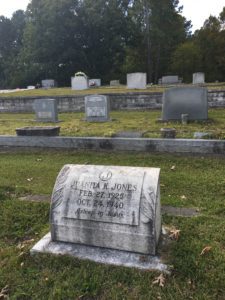Today, Feathered Quill reviewer Lynette Latzko is talking with Amy Rivers, author of All the Broken People.
FQ: I see that you’re a seasoned writer, but All the Broken People is your first endeavor into the psychological suspense genre. Why did you choose to write this type of story?
RIVERS: I've always loved suspenseful novels, whatever genre they fall into, and I studied psychology because I love thinking about why people do the things that they do. Writing a psychological suspense novel was the perfect marriage of those two loves. But when I started writing full-time, I had a particular woman's story in mind, and while it involves psychology and is often suspenseful, it didn't fall squarely into the suspense/thriller genre. That first book turned into two books. After I finished the second book, I realized that if I wanted to dig deep into the topics close to my heart, I needed to go darker. Luckily, around that time, I became completely obsessed with kudzu and secrets and All The Broken People is the product of that obsession.
FQ: Will there be a sequel? I’m curious to find out if Larry Lee can truly break away from Jasper and move forward in his life despite all the tragedy he’s caused and had to endure.
RIVERS: Larry Lee is one of my very favorite people. At the moment, I don't have sequel planned. Larry Lee's story is sad, and I'd love to give him a happy ending. In fact, I hope he did find happiness, or at least peace, but I don't have anything more to say about him at this time.
 FQ: Why did you choose the small southern town of Jasper, Georgia, as the primary setting in your novel?
FQ: Why did you choose the small southern town of Jasper, Georgia, as the primary setting in your novel?
RIVERS: My husband's family lives in Jasper, Georgia. Until I met him, I'd never spent any time in the South. I grew up in the New Mexico desert. Georgia was absolutely fascinating to me. Everything from the landscape to the culture. It's very different from what I grew up with. Jasper is a beautiful small town north of Atlanta--and I adore it. But I grew up in a small town. I'm very familiar with the way that small town politics and society can be both good and very bad. When you live in a place where you know everyone and everyone knows you, it's hard to escape your past. The same forces that make it difficult to transcend your reputation or past actions also tends to be fiercely protective of its own, leading to corruption, cover-ups, and a willingness to overlook even the most horrendous crimes. Silence hides violence, and small towns can be very silent. Jasper seemed like the perfect place to stir things up. And, of course, there is kudzu.
FQ: When you write, do you base any of the characters on people in your life, or do they spring into life completely out of your imagination?
RIVERS: Many of my characters are inspired by people I know or have met. I'm much more comfortable writing in the real world, so I can't help but think about how real people would react in extreme situations. But once I'm immersed in the story, the characters become their own people. I can still see resemblances to real people, but it doesn't take long to lose track of the inspiration and see the characters as unique individuals.
FQ: All the Broken People has won a few awards including the 2019 Distinguished Favorites by the Independent Press Award. What is your secret to writing award-winning novels?
RIVERS: Oh how I wish there was a secret! I try to write the best novel I can, creating characters who are relatable and will stick with my readers after they finish reading. With each story I write, I get better. I learn new things. Hone my craft. I think those are the things that have led to the critical successes that I've had with All The Broken People. I'm incredibly proud of this work, and I look forward to continuing to grow as a writer.
FQ: One of the themes of this novel relates to forgiveness and redemption. Do you believe that all people, regardless of how terrible their past behavior might have been, have the capacity for redeeming themselves, and ultimately being forgiven?
RIVERS: I think that they both redemption and forgiveness require a certain amount of empathy and compassion. I do believe that people who do terrible things can seek redemption and be forgiven. In fact, I think that forgiveness is a necessary part of healing for victims of crime, or even just careless behavior. That being said, I know that there are people who are psychological incapable of empathy and so seeking redemption is most likely something that they would never think to do. Or, if they seek forgiveness outwardly, they may have ulterior. For instance, psychopathic serial killers might not be capable of seeking redemption. And it may seem impossible to forgive someone who commits such heinous crimes, but the ability to forgive is still invaluable in coming to terms with and moving on from said crimes.
FQ: What type of process do you go through when you’re writing, and does it differ between each story you write?
RIVERS: Every story I write starts with a character or a set of characters. Currently, I'm writing a story that revolves around two sisters and their family dynamic. Once I can picture my characters, I move on to a problem. One that would challenge those characters given their personalities, careers, or backgrounds. In All The Broken People, I started with Alice. I imagined her background. She is the child of an alcoholic and she has struggled with addiction herself. She's convinced herself that she's recovered, and it's true that she's not drinking anymore. But, as if often the case, Alice is co-dependent, obsessive, and self-destructive. Those qualities lead her down a road where she finally has to face who she is and how she's come to be in the situation she now finds herself. Combine that with a series of suspenseful and often frightening occurrences and you've got yourself a story. This is the way my mind works, so every story starts in a similar fashion, but with different characters and circumstances.
 FQ: While Alice is caring for Mae, she busies herself doing research for an article about the tragic life of Juanita Jones. Can you tell readers a little more about Juanita, and why you chose to include her in this story?
FQ: While Alice is caring for Mae, she busies herself doing research for an article about the tragic life of Juanita Jones. Can you tell readers a little more about Juanita, and why you chose to include her in this story?
RIVERS: As I was researching the history of Jasper, Georgia and of Pickens County, I ran across the story of Juanita K. Jones, a 15-year old young woman who was killed by her husband. I'd been thinking about all the ways that domestic violence may present itself in a marriage - with my character, Alice, in mind. The story of Juantia's short life and brutal death struck a chord with me. The patterns of abuse present in her relationship with her husband were testbook, but the nature of her death was not. The year was 1940 and domestic abuse inside a marriage was something that people usually swept under the rug. Juanita was neither the first nor the last woman to die by her husband's hands, but her youth, her status in her hometown, and the fact that she was pregnant at the time of her death, gave the crime notoriety. Juanita's husband was convicted of murder at a time when even being charged with domestic abuse was practically unheard of. I wondered how Alice, with her own troubled past, would respond to Juanita's story - how it would make her feel about her own life and life choices.
I met with Juanita's family, and as I learned more about her, I couldn't shake the need to give this woman a voice. And, with her family's permission, I incorporated her story into my book as a lens through which Alice beings to understand her own situation. After publication, I met with the director of the North Georgia Mountain Crisis Network to establish the Juanita K. Jones Memorial Fund, which will benefit domestic violence victims in North Georgia. Sharing Juanita's story firmed my resolve to instill in everything I write, fiction or otherwise, a sense of responsibility to those who have come before us, and for future generations.

No comments:
Post a Comment